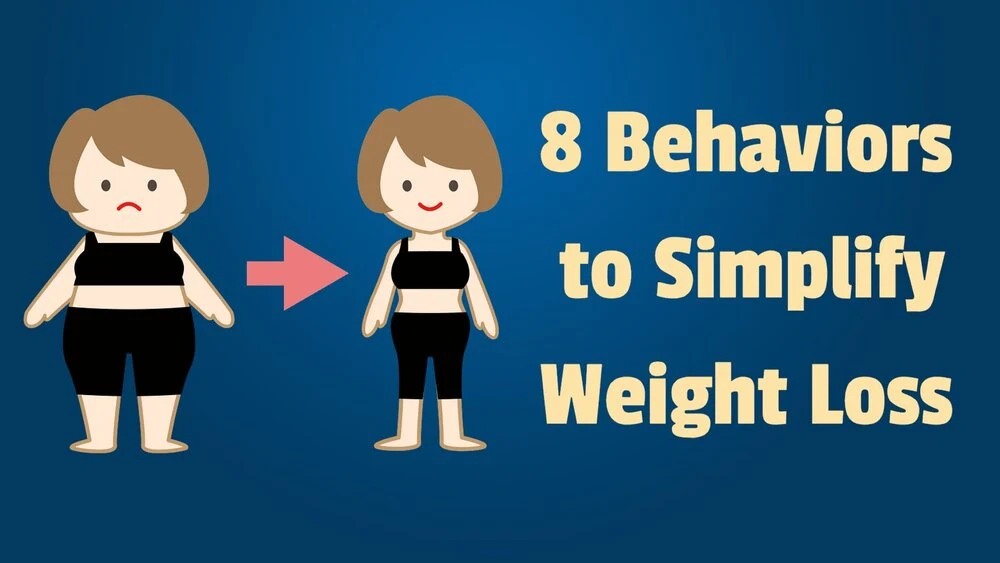8 Simple Habits to Make Weight Loss Easier
Losing weight can feel overwhelming. Even highly motivated individuals often struggle to stick with exercise routines or diet plans for more than a few months. The challenge lies not only in shedding pounds but maintaining weight loss over time. Obstacles, setbacks, and lifestyle constraints make this journey difficult.
However, weight loss does not need to be complicated. With the right strategies, discipline, and knowledge, you can make meaningful progress without a personal trainer or expensive programs. Here are eight evidence-based habits to simplify your weight loss journey.
1. Short Workouts Are Effective
You don't need to spend hours in the gym to lose weight. Research from the University of Copenhagen suggests that 30 minutes of daily aerobic exercise can be as effective—or even more effective—than 60 minutes in promoting weight loss. Short, consistent workouts can save time while still delivering excellent results.
2. Learn Nutrition Basics and Read Labels
Understanding the fundamentals of nutrition, including fats, carbohydrates, proteins, and sodium, significantly enhances weight loss success. Reading food labels and knowing the Recommended Daily Intake (RDI) helps you make healthier choices, avoid hidden calories, and maintain portion control.
3. Stay Hydrated
Drinking enough water supports weight loss by increasing feelings of fullness, reducing calorie intake, and replacing sugary drinks. Adequate hydration also helps your metabolism function efficiently.
4. Use Spices to Boost Metabolism
Spicy foods can temporarily increase metabolic rate and promote satiety, helping you burn more calories and feel fuller. Incorporating spices like chili, cayenne, or ginger can complement your weight loss efforts.
5. Focus on High-Quality Foods
According to Harvard School of Public Health, focusing on nutrient-dense, minimally processed foods is crucial for weight management. Include vegetables, fruits, whole grains, lean proteins, and healthy fats in your diet for better long-term results.
6. Avoid Excessive Comfort and Warmth
Exposure to cooler temperatures can increase calorie expenditure as your body works to generate heat. Staying too comfortable and warm reduces this calorie-burning effect, potentially contributing to weight gain.
7. Limit Eating After Dinner
Metabolism slows at night, so avoid heavy meals close to bedtime. Opt for light snacks if needed, such as fruit, low-fat yogurt, or small portions of nuts or popcorn.
8. Plan Your Meals
Meal planning ensures balanced nutrition and portion control. Even simple plans, like having protein-rich eggs in the morning, a healthy lunch, and a wholesome dinner, can prevent overeating and promote steady weight loss.
FAQ – Simple Habits for Weight Loss
Can short workouts be effective for weight loss?
Yes, research shows that 30 minutes of daily aerobic exercise can be as effective or even more effective than 60 minutes for promoting weight loss. Short, consistent workouts save time while delivering excellent results.
Why is it important to understand nutrition and read food labels?
Knowing the basics of fats, carbohydrates, proteins, and sodium helps make healthier choices, avoid hidden calories, and maintain portion control, all of which enhance weight loss success.
How does staying hydrated help with weight loss?
Drinking enough water increases feelings of fullness, reduces calorie intake, replaces sugary drinks, and supports metabolism, all of which contribute to weight loss.
Can spices help with weight loss?
Yes, spices like chili, cayenne, or ginger can temporarily boost metabolism and promote satiety, helping burn more calories and reduce hunger.
What type of foods should I focus on for weight loss?
Focus on nutrient-dense, minimally processed foods such as vegetables, fruits, whole grains, lean proteins, and healthy fats for better long-term weight management.
Does staying too warm affect calorie burning?
Yes, exposure to cooler temperatures increases calorie expenditure as your body works to generate heat. Staying too comfortable and warm may reduce this effect, potentially contributing to weight gain.
Should I avoid eating after dinner?
Limiting heavy meals close to bedtime is beneficial because metabolism slows at night. If needed, choose light snacks like fruit, low-fat yogurt, or small portions of nuts or popcorn.
How can meal planning support weight loss?
Meal planning ensures balanced nutrition and portion control. Even simple plans like protein-rich breakfast, a healthy lunch, and a wholesome dinner can prevent overeating and promote steady weight loss.


Comments